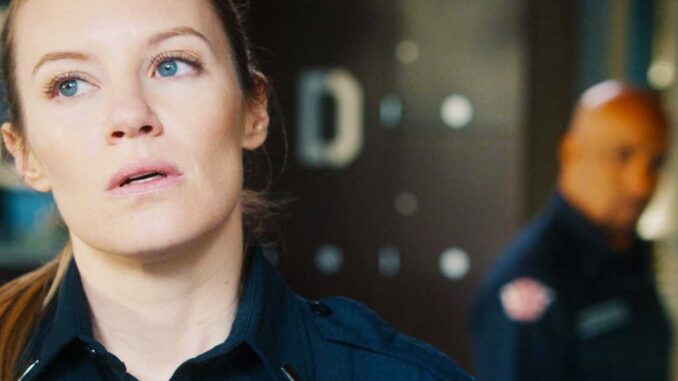
The Echo in the Well: Why Savre’s Return in Found Season 2 Outshines Maya’s Entry in Grey’s Anatomy
Television thrives on the power of the new: the fresh face, the unexpected twist, the character who shakes up the established order. Yet, not all introductions or returns are created equal. While Grey's Anatomy has perfected the art of integrating compelling new personalities, exemplified by Maya Bishop's vibrant entry into the Seattle medical/firefighting universe, the second season return of Savre in Found is a narrative masterstroke. It's not merely a character re-appearing; it's a seismic event that reshapes the entire premise of the show, offering a depth of psychological complexity and moral ambiguity that fundamentally outshines the more additive, albeit well-executed, impact of Maya's arrival.
Maya Bishop, when she entered the Grey's Anatomy universe via Station 19, was a breath of fresh air. A former Olympic athlete turned driven firefighter, her character brought a new kind of intensity, a competitive edge, and a compelling personal arc, particularly through her relationship with Carina DeLuca. Her introduction served to expand the world, introduce new stakes, and offer a different flavor of heroism. Her conflicts were largely external – battling fires, navigating a complex professional hierarchy, and challenging societal norms – or internal, stemming from her past and her struggle with vulnerability. She was a robust, well-rounded addition, enriching the narrative fabric and providing fertile ground for new storylines within the established framework of Seattle Grace/Grey Sloan Memorial. Her impact was undeniable, but it largely functioned as an expansion of an already mature universe.
Savre's return in Found Season 2, however, is not an expansion; it’s an implosion and a rebirth. Savre, the younger brother of protagonist Gabi Mosely, is not a new face but the ghost at the feast, the foundational wound upon which Gabi's entire existence and the show's premise are built. He is the missing person whose absence drove Gabi to dedicate her life to finding others, even if it means operating outside the law. When he resurfaced at the end of Season 1, alive but deeply altered by his abduction, it wasn't a happy reunion; it was the unleashing of a primal fear and a profound moral quandary.
The brilliance of Savre’s return lies in its ability to simultaneously resolve and complicate the show's central mystery. For years, Gabi’s search for him fueled her relentless, often morally grey, mission. With his physical return, that driving force morphs into something far more intricate. Savre is not the innocent child Gabi remembers; he is a man shaped by trauma, possibly even by his captor, a reflection of the very evil Gabi hunts. His reintroduction forces Gabi, and the audience, to confront uncomfortable truths about victimhood, survival, and the blurred lines between right and wrong.
Unlike Maya, whose internal struggles were often relatable battles against ego or external expectations, Savre's internal landscape is a scarred, uncharted territory. His "return" is less about finding his place in society and more about Gabi grappling with who he has become and what that means for who she is. Does she protect him no matter what? Can she? What if his actions are a product of his trauma, or worse, a reflection of a deeper corruption? This isn't merely a new character joining a team; it's the very foundation of the protagonist's moral compass being violently spun.
The narrative ripple effect of Savre is cataclysmic. Every decision Gabi makes, every case her team takes, is now filtered through the lens of her brother's presence. His existence challenges her methodology, her ethics, and her definition of justice. The show, which began as a procedural with a dark edge, transforms into a psychological thriller with profound philosophical questions at its core: What is justice for a victim turned possible perpetrator? Can trauma ever truly be undone? How does one reconcile the past with a terrifying present?
While Maya Bishop's entry into the Grey's universe provided engaging drama and broadened the scope of its storytelling, it didn't fundamentally alter the core mission or internal struggle of Meredith Grey or the hospital itself. It was an excellent addition, a vibrant splash of new color on a familiar canvas. Savre's return, by contrast, is a re-plastering of the canvas itself, a deep, unsettling crack that forces the entire structure to reconsider its integrity. It’s an echo from the deepest well of Gabi’s past, reverberating through every new scene, every new dilemma, proving that sometimes, the most impactful "new" character is one who was always there, waiting in the dark, to fundamentally redefine everything.
